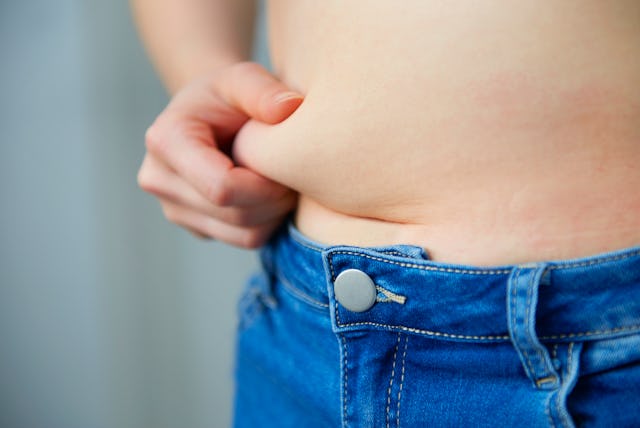Preschoolers Associate Thinness With Happiness, Study Finds
Researchers found that kids as young as 5 perceive slimmer people to be more attractive and happier than those who are overweight.

In distressing news, children accept the stigmas and stereotypes associated with body image and beauty standards when they are as young as five years old.
A June study published in the journal BMC Pediatrics found that kids begin to believe in the concept of beauty-related happiness as preschoolers. Working with 680 five year olds (329 girls, 351 boys), researcher Małgorzata Lipowska and her team used a pictorial scale of three silhouettes (slim, normal weight, overweight) to understand how children associate different body types with perceptions of happiness and social success (wise, kind, earns the most money, works in the coolest place).
The results indicated that obese bodies were seen as unattractive, independent of gender, and that children associated looks with happiness. (The body type identified as the most physically attractive was seen as the happiest person.) Findings also illustrated that preschoolers already perceive female bodies along gender stereotypical lines and that women with slim bodies, as well as those of normal weight, are happier than those who are considered obese.
There were other gender differences in the findings, as girls judged the slim and normal-weight female silhouettes as equally happy, while boys chose the slim female silhouettes as the happiest. (This could indicate that young girls have healthier standards concerning women’s weight.) Girls were also more likely than boys to think the normal-weight male figure earned the most money and the overweight man was the nicest. Boys were more likely to think the thin man was the nicest.
When it came to judging which figure was the smartest, the children did not seem to associate looks with intelligence, especially for female silhouettes.
The preschool period is a crucial point in the development of attitudes towards beauty and body image, and this study suggests that children show signs of body stigmatization very young. Cultural norms modeled by parents and peers, and depictions in the media — pretty princesses, muscular heroes — most likely shape these constructs, which could have significant repercussions on children’s attitudes and relationships later in life.
In prior research by Jennifer A. Harriger, three-year-olds were found to select obese children as playmates more frequently than five-year-olds. This result is interesting, researchers said, given that “the three-year-olds also exhibited a significant inclination towards ascribing positive features to slim individuals and a general disinclination towards the bodies of obese individuals as well as those of average build.” This reportedly suggests the belief that “slim is better” increasingly appears in younger children.
Researchers added, “there is a difference between knowledge regarding stereotypes and stereotypical beliefs: children may exhibit knowledge of stereotypes independently of whether they believe the stereotypes are appropriate.”
If you’re looking to instill positive body image in your children, books like Bodies Are Cool by Tyler Feder, Lovely by Jess Hong and Her Body Can by Katie Crenshaw and Ady Meschke are wonderful tools.
This article was originally published on